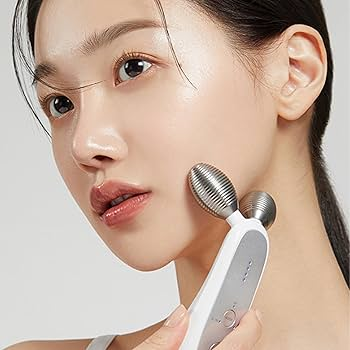High-End Skincare: Worth Your Money?
IN THIS ARTICLE
Hello everybody, we're back for another discussion. This time we're going to tackle the subject of overpriced skincare. You see, when I was just starting to get into skincare, I was under the impression that it was an expensive endeavor. But as I delved deeper, I realized it wasn't necessarily the case. Sure, there are high-priced products with unique benefits, and we will address those in another article. But today, we want to expose the overpriced items that aren't worth the investment. Our goal is to help you redirect that money towards better use. This discussion might not sit well with everyone and we might ruffle a few feathers. But if we can help you save some money, it's all worth it.
Let's talk about skin fridges
A popular trend for storing beauty products is in mini fridges. It's a luxury, but is it necessary? The simple answer is no. The main argument in favor of skin fridges is they enhance product longevity. But remember, products are designed to last a specific time period due to the preservatives they contain. Unless a product is natural and homemade, like a piece of aloe vera cut directly from the plant, storing in a fridge is not essential. A fundamental rule I've always followed: if a product wasn't refrigerated at the point of purchase, it need not be refrigerated afterwards. Dermatology products typically don't carry any "refrigerate after opening" instructions, further emphasizing this point.
There are certain instances where storing skincare products in the fridge might be beneficial. If you suffer from conditions like eczema or atopic dermatitis, for instance, a refrigerated moisturizer might help alleviate itchiness. This is similar to how menthol works to soothe itchiness by acting on the same nerve receptors. In the morning, you might consider refrigerating an eye cream, as the cooling effect from the cold can cause vasoconstriction and potentially reduce puffiness in the skin. However, for most people, refrigerating eye creams or moisturizers isn't necessary.
A notable exception might be products that contain vitamin C, an ingredient known for its instability. While vitamin C remains stable under normal temperature conditions ranging from 60 to 113 degrees, refrigeration might help prolong its longevity. Though the extent of this longevity is unclear, it's a reasonable assumption based on the observable fact that refrigerated produce tends to ripen slower. Nonetheless, the most significant factor in preventing vitamin C degradation is actually limiting its exposure to air. Therefore, storing it in a sealed container is more crucial than refrigeration.
Niacinamide, another popular skincare ingredient, is ultra-stable and doesn't require refrigeration. In my own home, I don't have a skincare fridge, but I do refrigerate my L-ascorbic acid form of vitamin C out of habit. While other forms of vitamin C such as magnesium ascorbate don't need refrigeration due to their stability, L-ascorbic acid might benefit from it. In conclusion, while there could be some benefits to utilizing a skincare fridge, it's not a necessity. Any price point for it is likely overpriced. Spend your money elsewhere.
The Truth about Premium Hyaluronic Acid Serums
Next, let's discuss the hype surrounding expensive hyaluronic acid serums. We don't dislike hyaluronic acid, but the overpriced, overhyped narrative around it is worth addressing.
It's challenging to critique these products, knowing the amount of thought that goes into creating them. However, when it comes to hyaluronic acid, a moisturising and plumping ingredient, you shouldn't need to break the bank. Most hyaluronic acid in skincare doesn't penetrate beyond the skin's epidermis, meaning it provides temporary hydration and plumping rather than long-lasting effects. While the serum from Dr. Barbara Sturm is not bad and does indeed contain both low and high weight hyaluronic acid, there are more affordable options out there. If I'm spending hundreds of dollars, it would be in the realm of professional medical-grade procedures, which will deliver more noticeable results.
Alternative products, such as the L'Oreal Revitalift 1.5 percent pure hyaluronic acid serum or the Inkey List Hyaluronic Acid, offer blends of high and low weight hyaluronic acid at a fraction of the cost. High weight hyaluronic acid sits on the skin's surface, providing hydration and anti-inflammatory benefits, while low weight hyaluronic acid penetrates the epidermis. The blend of these two types of hyaluronic acid is preferable, as low weight alone can be pro-inflammatory. My final advice would be to look for a high molecular weight hyaluronic acid product, like the Vichy mineral 89. This product, along with the Inkey List one with Matrilix 3000, a peptide with anti-aging properties, is among my top recommendations.
Debunking the Myth of Luxury Moisturizers
As for expensive moisturizers, it's another area where you don't need to overspend. While I'm a fan of rich, thick moisturizers, you can find excellent, affordable options. One of my favorites is the Cerave moisturizing cream. It's not about how much you spend, but the product's effectiveness and how it benefits your skin.
However, there are products, such as certain moisturizers, that can cost around $500. Are they worth the price tag? In my opinion, much like cleansers, you don't need to go high-end for your moisturizers. Surprisingly, most of these expensive moisturizers have a similar formulation to their lower-cost alternatives. For instance, La Mer moisturizing cream, a celebrity favorite, is priced at $500 but doesn't offer anything extraordinary.
Let's discuss some ingredients that I'm not a fan of. In particular, I avoid products with excessive fragrance. While only about 4% of the population is allergic to fragrance, it's still a potential allergen. If a million people read this article, roughly 40,000 could potentially have an allergic reaction to fragrant ingredients. Thus, to avoid unnecessary risks, I prefer to use products with minimal or no fragrance. Moreover, many of these high-end products contain ingredients such as limonene, linalool, and lime peel, which can potentially cause allergies and irritation. Often, these products are basically simple moisturizers with some added 'super' ingredient, like seaweed in the case of La Mer's cream.
I personally favor more affordable options like La Roche Posay's Toleriane Ultra and Lipikar Balm. They are effective, and I have used them multiple times. Another product I enjoy is the Skinfix Triple Lipid Peptide Moisturizing Cream. It is slightly more expensive than what I'd usually go for, but in my view, it's worth the price.Interestingly, a study conducted by a dermatologist revealed that pricey moisturizers often contain more potential allergens and irritants than their cheaper counterparts. This is important to remember while shopping for skincare products.
Why Expensive Oils Are Not Always the Best Choice
Now, onto our next topic – expensive oils. Certainly, there are oils such as rosehip and grape seed that we're quite fond of. Primarily, we appreciate their benefits when included in skincare products. Safflower oil is another that we believe is being overlooked in the skincare industry. However, we firmly hold the view that olive oil doesn't have a place in skincare, despite its benefits when consumed.
Looking at products like True Botanical's Pure Radiance Oil, which commands a price tag of over $100, we can agree it includes good quality oils such as jojoba, safflower, pumpkin seed, argan, grapeseed, and sunflower oil. Still, it also includes some potentially irritating ingredients like lavender oil, rosemary, limonene, linalool, and it includes olive oil that we know can disrupt the skin barrier. Hence, though the product isn't bad on the whole, we can't readily recommend it, especially considering the price. Instead, we suggest opting for specific oils from brands like The Ordinary, which offers affordable, cold-pressed oils. For instance, instead of purchasing an $80 Marula oil, you can find a similar product from The Ordinary for significantly less.
There's no denying the allure of luxurious skincare. It often looks good and feels extravagant, just like buying a nice car or house. It might not be necessary, but it adds a touch of luxury that some may find appealing. However, it's important to remember that it doesn't necessarily mean it's better or that we recommend it. So, as for expensive skincare oils, we advise you to save your money. In our upcoming content, we'll cover skincare products that are worth splurging on. Until then, thank you for your constant support and interaction. Continue to comment and subscribe.
About the Author: Caolan
With over a decade of international experience, Caolan's passion lies in simplifying the complex. His innovative thinking and audience-first approach have made significant impacts across the creative industries. Now, as the founder of But More Importantly, he applies these talents to the world of cosmetics, aiming to unmask marketing hype and provide readers with the truth about beauty products. His mission: to help you make informed choices and discover what truly enhances your beauty routine.
























